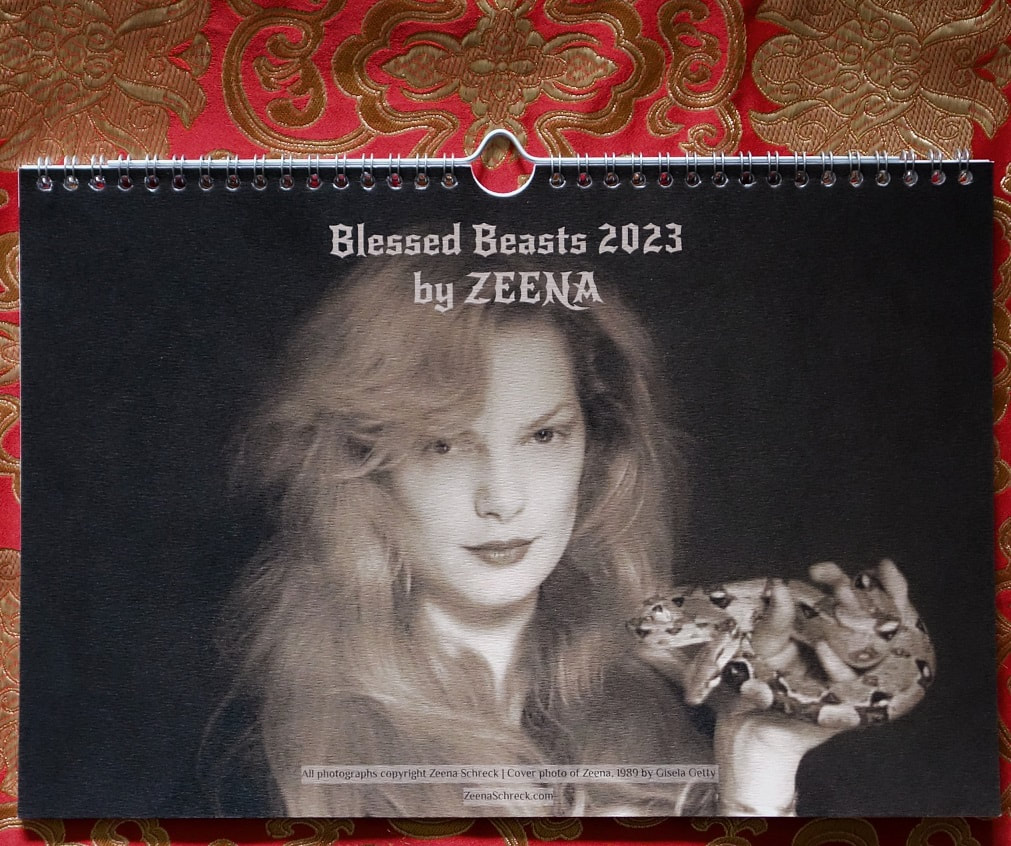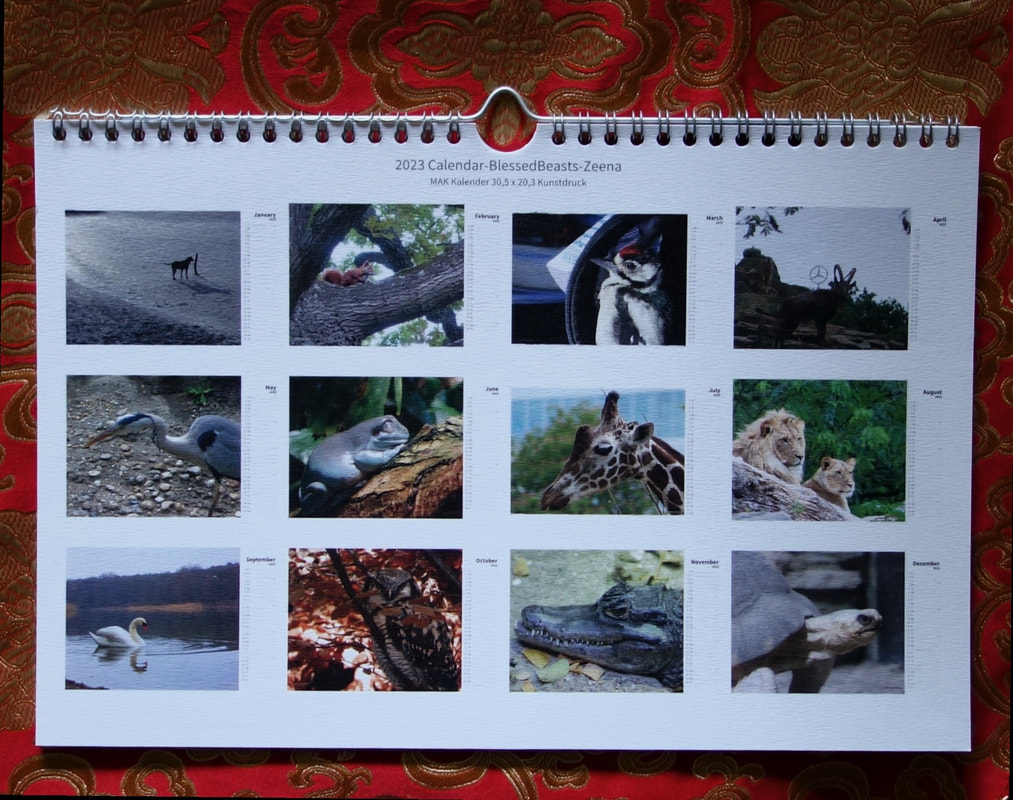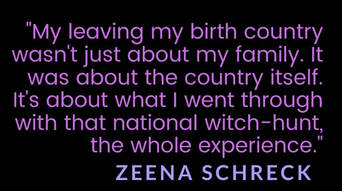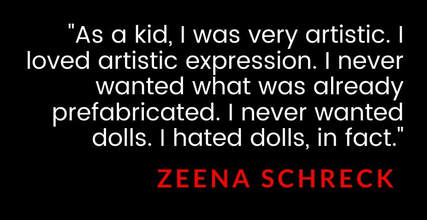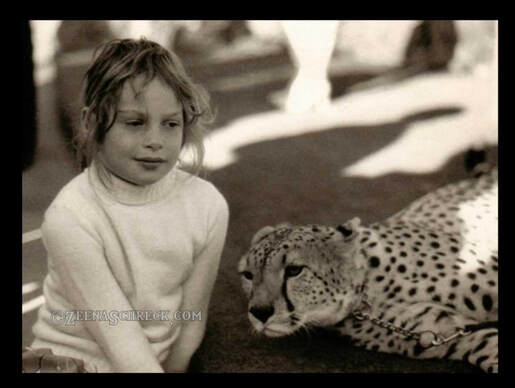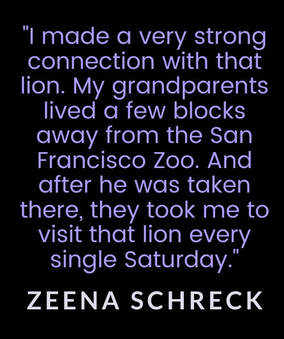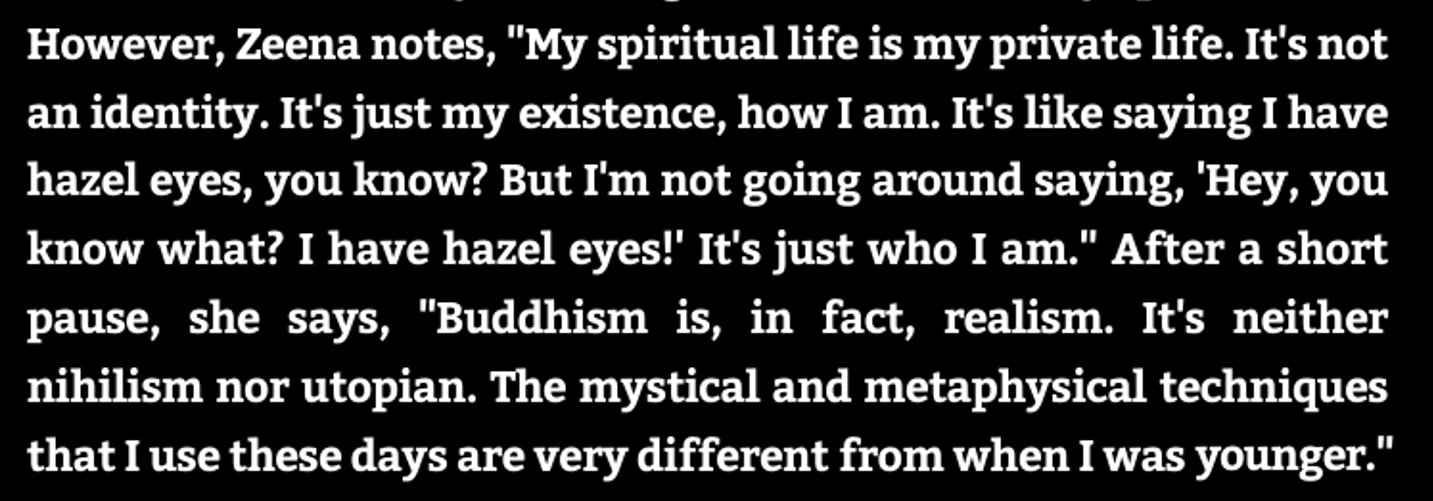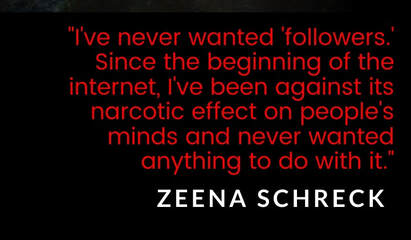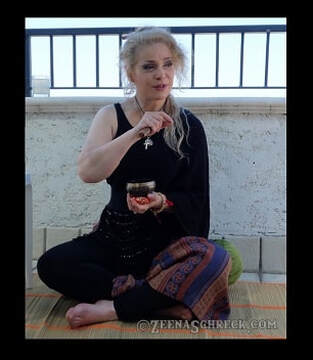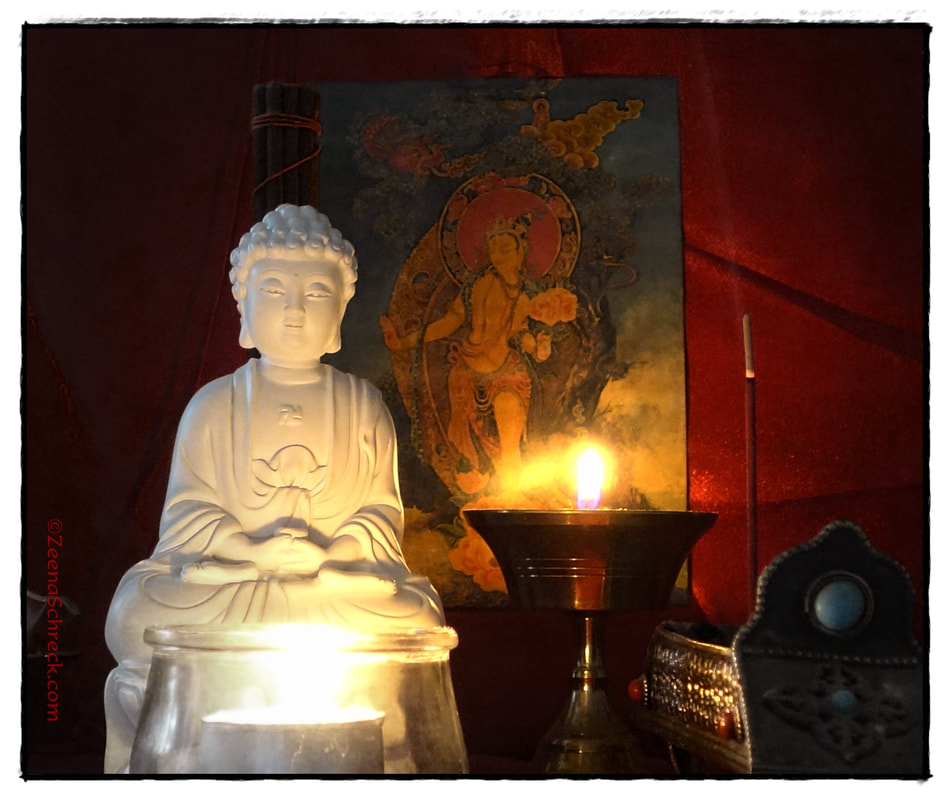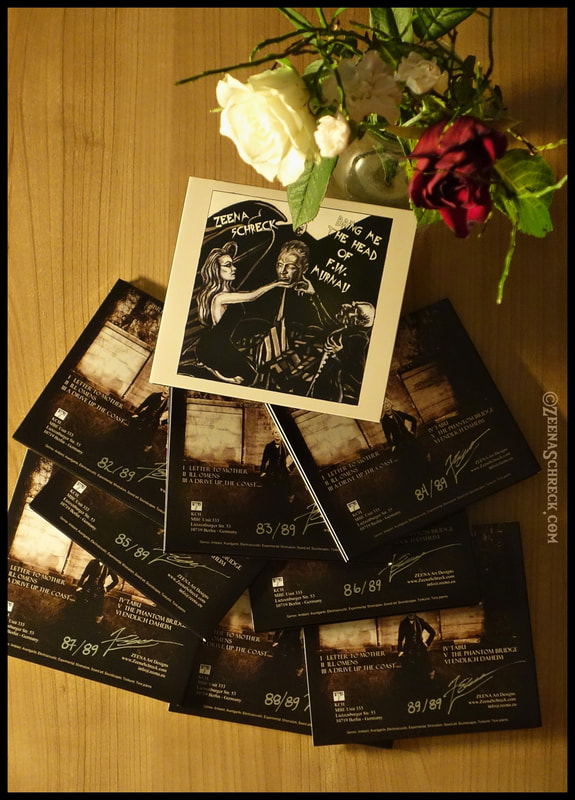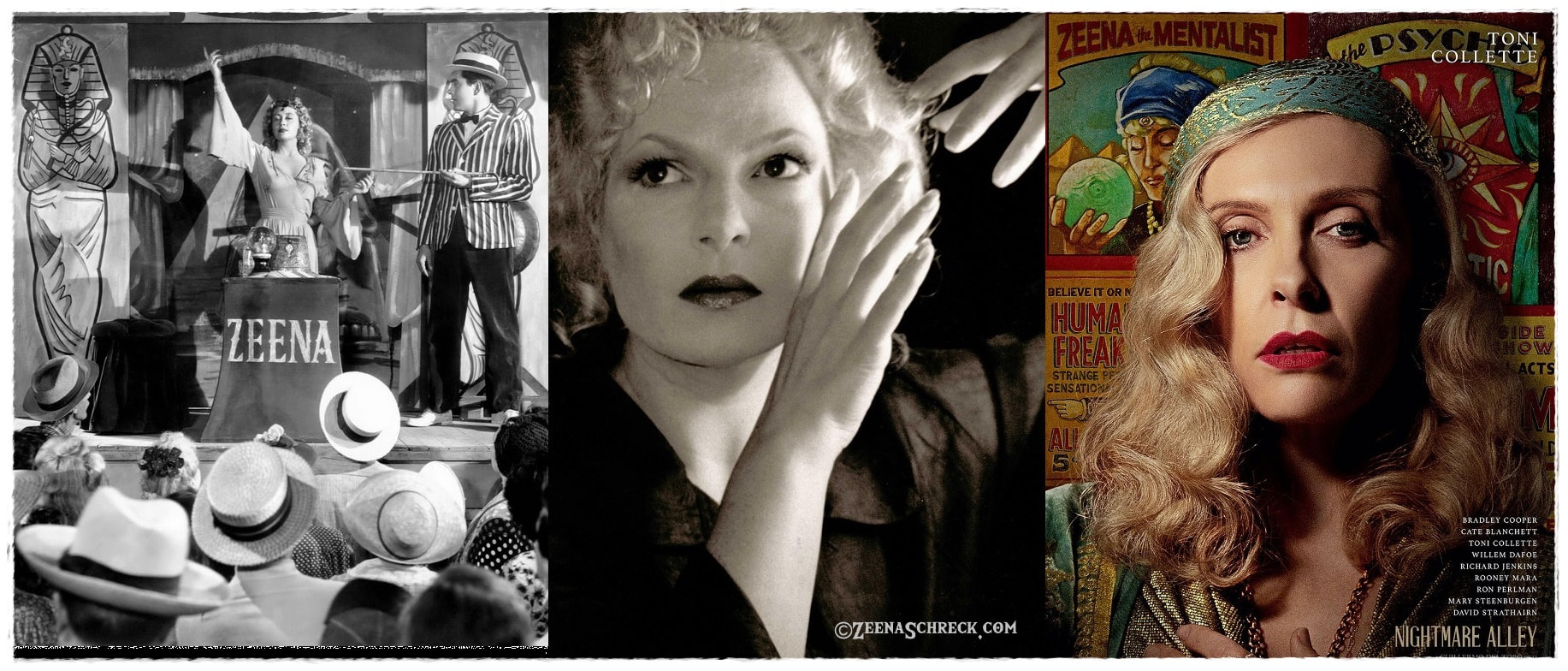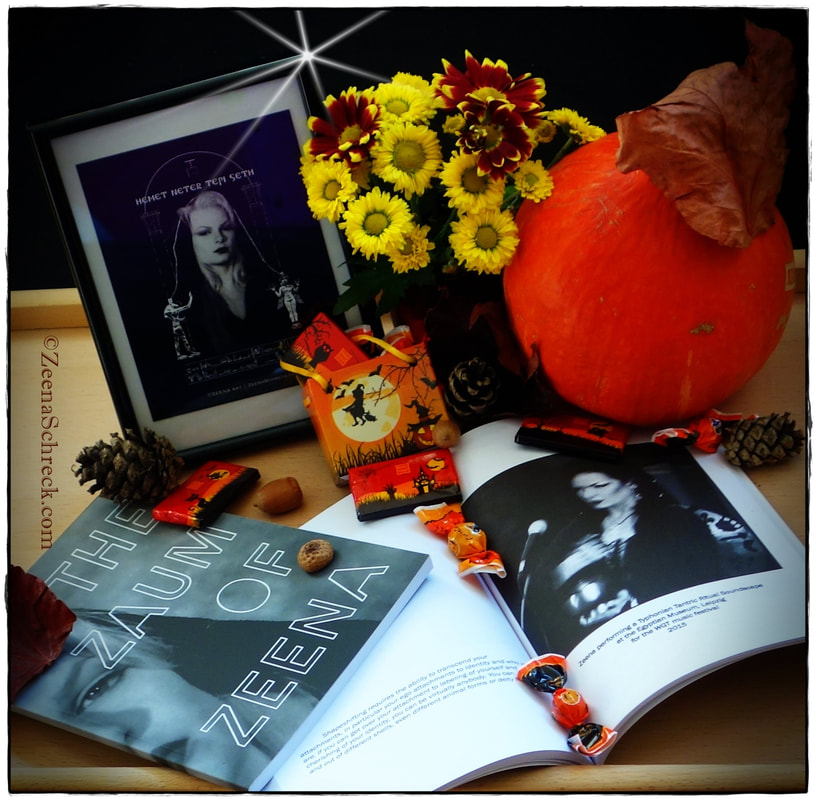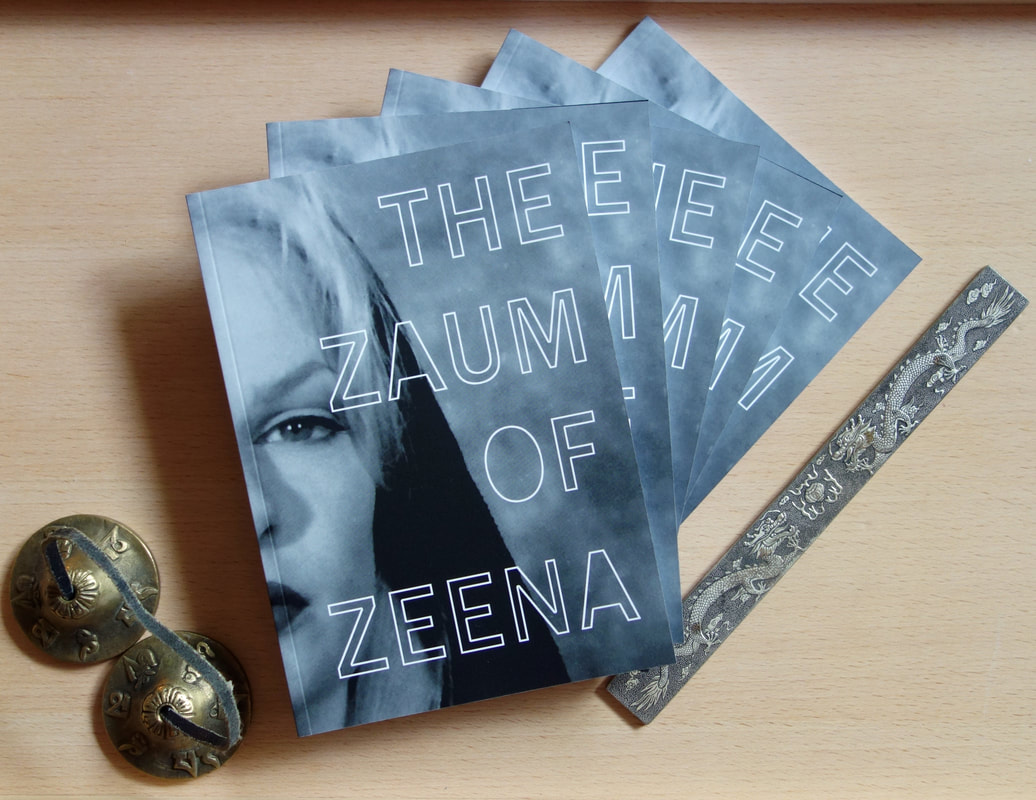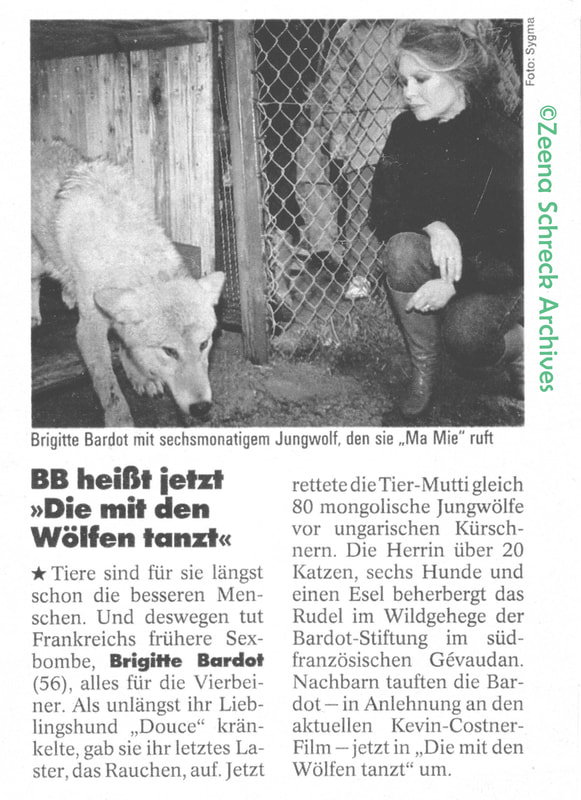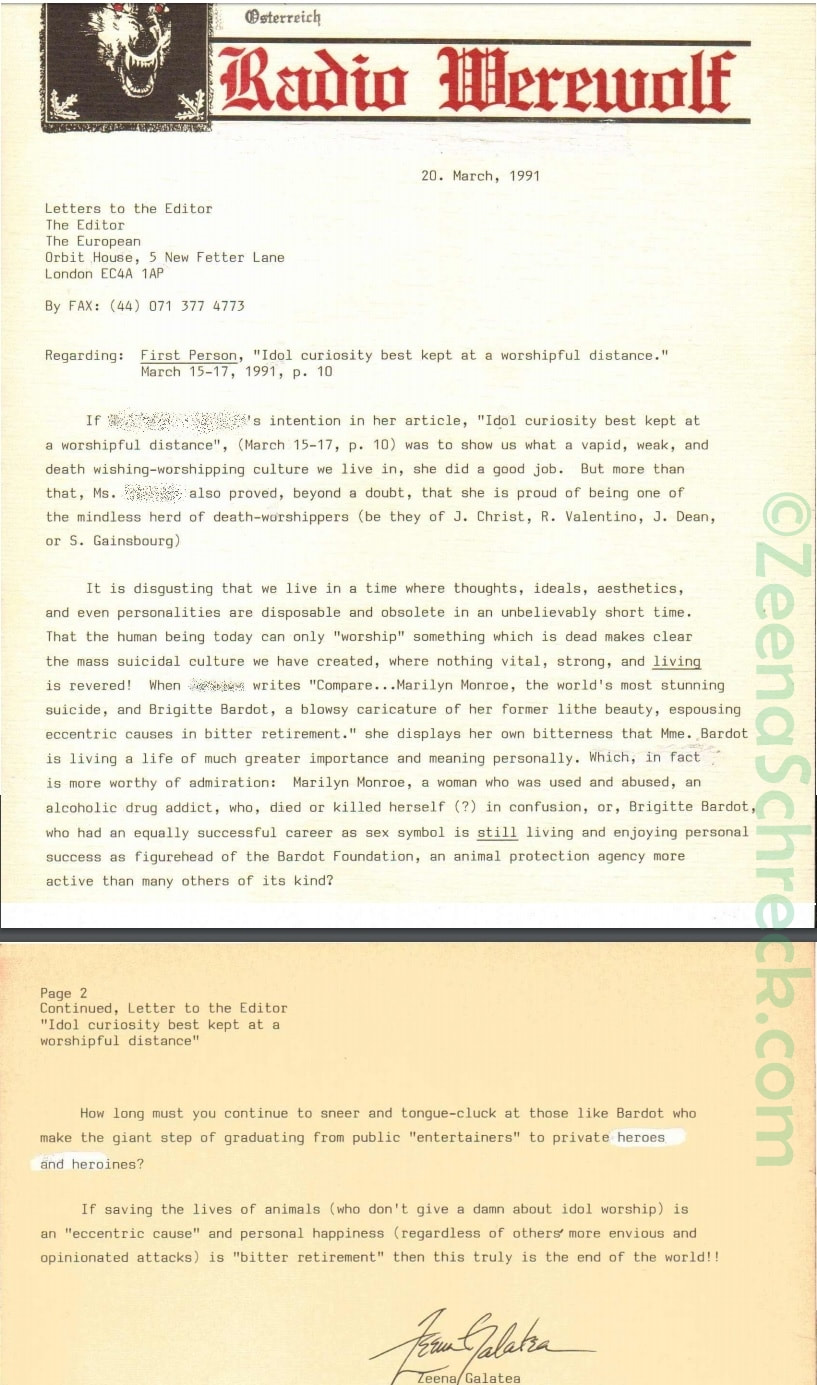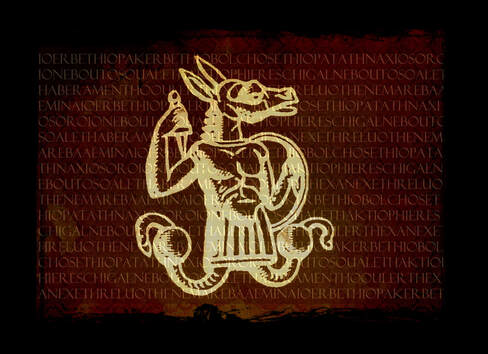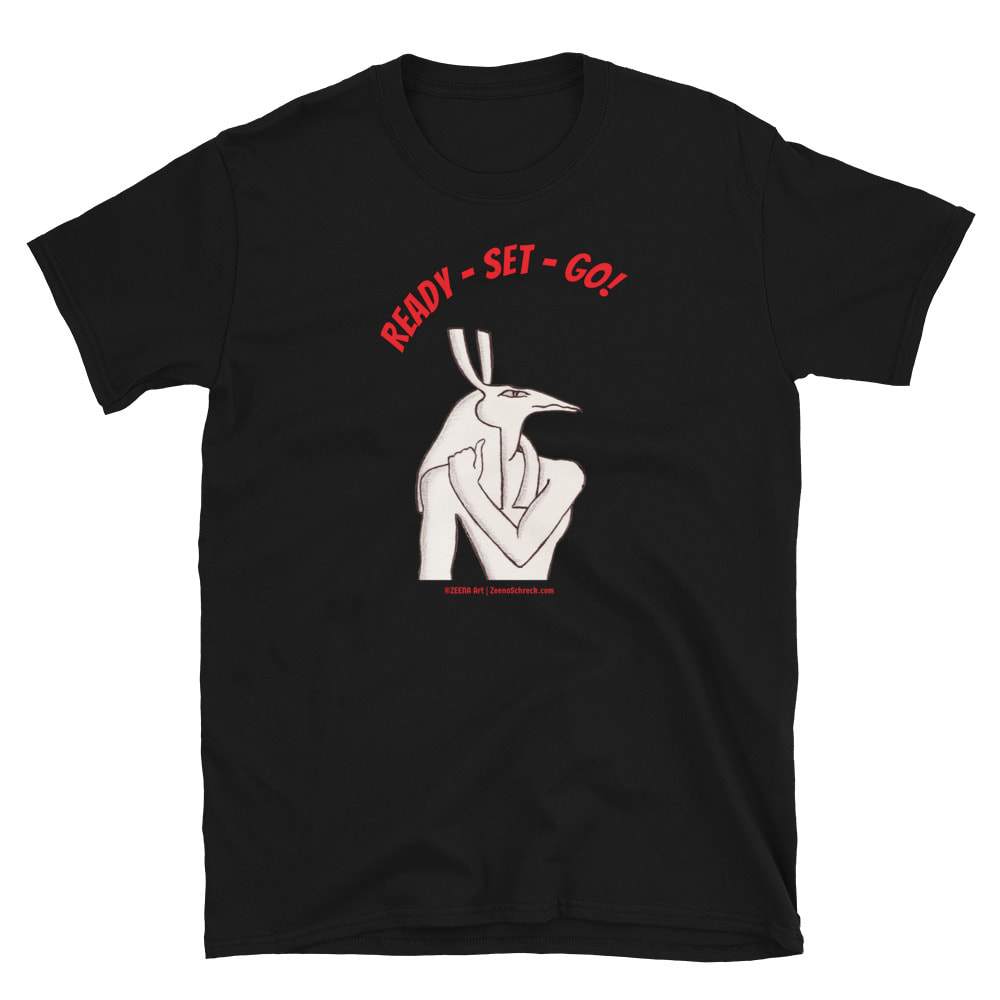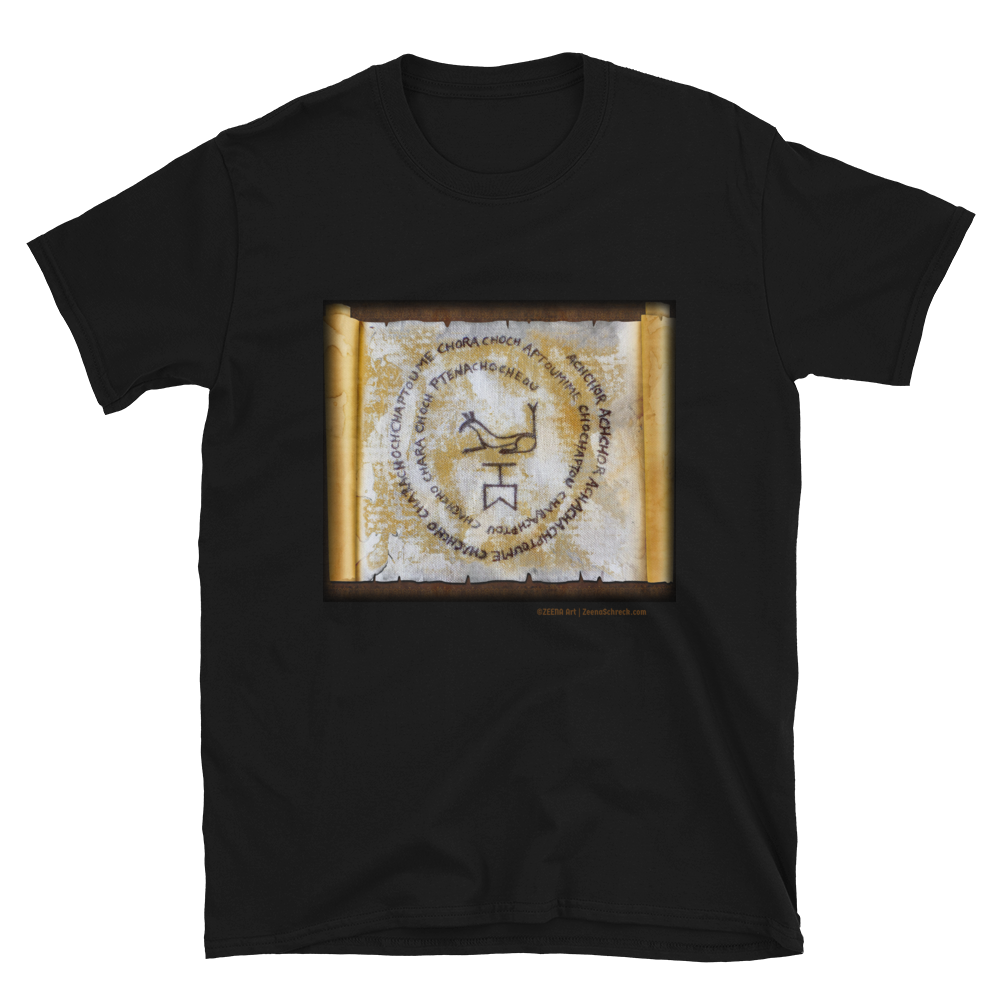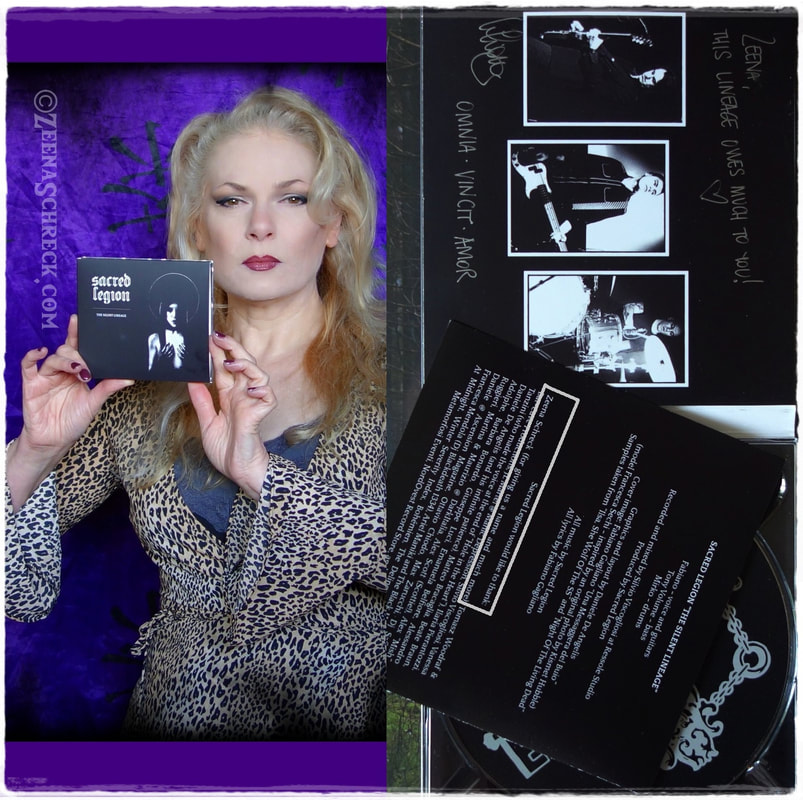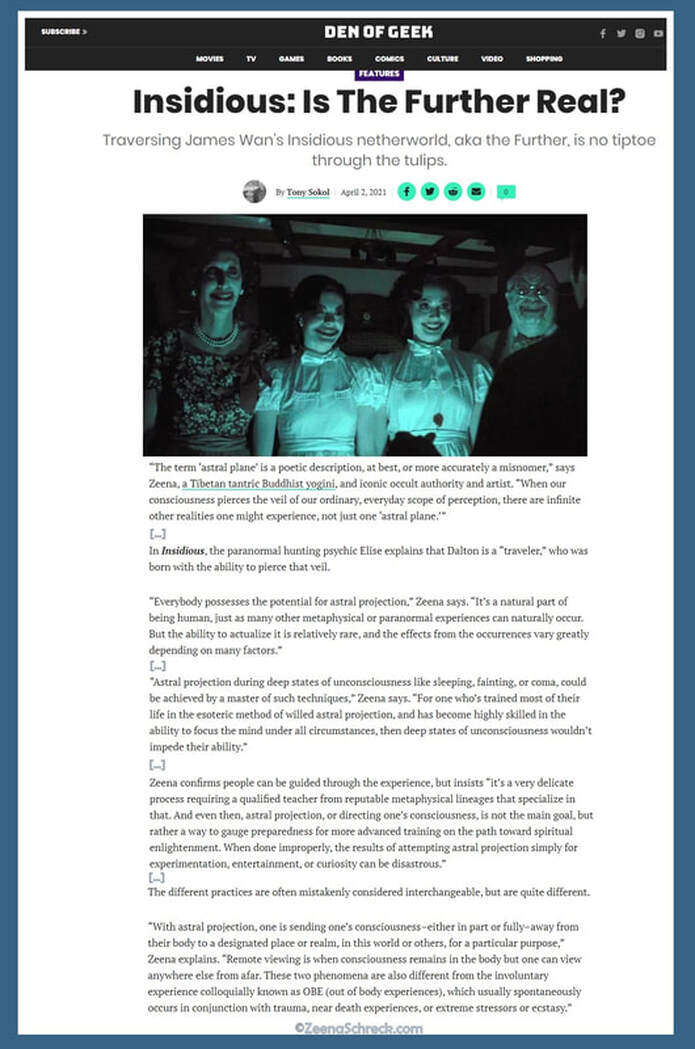|
Christy Alexander Hallberg interviews Zeena for Rock is Lit Podcast, Episode 6, focusing on rock novel ‘Sway’ by Zachary Lazar. Hallberg states, “In the final segment, I was so privileged to get the chance to talk with Zeena Schreck who was kind enough to share her memories of Kenneth Anger and her insight into some of his iconic films, especially the 1969 'Invocation of My Demon Brother', a movie that is the connective tissue of 'Sway'. Believe me you don't want to miss this episode.” 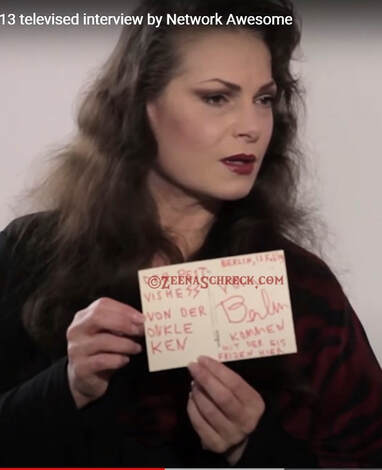 Rock is Lit Podcast description: “Zeena Schreck, who is an artist, musician, Tibetan Buddhist yogini, and the goddaughter of Kenneth Anger, as well as former High Priestess of the Church of Satan (founded by her late father Anton LaVey), shares her memories of Kenneth Anger, including how her father made him her godfather and her personal and working relationship with Kenneth. She also talks a bit about her background and rebuilding her life as a Buddhist in Germany. In addition to this, Zeena discusses Kenneth’s interest in Aleister Crowley; the making of and background on some of his iconic films, especially the 1969 film ‘Invocation of My Demon Brother’ (a movie that figures large in Zachary Lazar’s novel ‘Sway’); Kenneth’s relationship with Anita Pallenberg and her influence on the Rolling Stones; and how Kenneth’s work influenced MTV and music videos.” Zeena's part begins at the one hour mark: www.christyalexanderhallberg.com/rockislitpodcast/zacharylazar/tonysokol/zeenaschreck
In addition to the main interview, don't miss the bonus material with show notes and special photos from Zeena on the Rock is Lit Vault page : https://www.christyalexanderhallberg.com/podcast-vault-feed/zeenaschreck Zeena's music "Summer Swelter" and "ENDLICH DAHEIM”, from ‘Bring Me the Head of F. W. Murnau’ are segmented in her interview. [posted by T.M. Thursday 13 October, 2022; 15:50]
1 Comment
Blessed Beasts 2023 Fine Art Calendar By ZeenaFor World Animal Month coming in October: Zeena honors our non-human totems, familiars, spirit guides and animal companions in a limited edition 2023 fine art calendar. Vibrant original works photographed by Zeena for monthly contemplations on animal wisdom, welfare, rights and liberation. A celebration and appreciation for the magical and spiritual bonds between all species of sentient beings. Personalized autograph option located in the drop-down menu.*
(*If you have animal companions for which you'd like Zeena's personalized blessings - as well as for yourself - simply send your and/or the animals names to [email protected] to be added in the calendar inscription.) -ORDER HERE- About the paper: *All images are printed with classic look on Hahnemühle photo art print paper. *High quality inkjet printing process. *Paper surface is fine matte and textured. *Weight of 250 g/m² *Dimensions: 300x200mm / 8”x11½” *Suitable for cropping and framing after use. 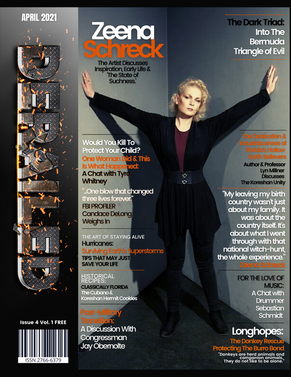 Zeena Cover Story in Derailed Magazine: Since the publication of this extra-long interview with Zeena for Derailed Magazine, many have requested to read it in a more user-friendly format. Specifically, some found the version on the Derailed website difficult to open and navigate to read all the way through whereas some non-native English speakers expressed that they would have liked a way to read the text through translation apps. For those reasons, we're archiving the complete interview text below in this post. The original full color hardcopy of the magazine (containing visuals not included in this post) is available at: https://www.derailedmagazine.com/april-2021 Many thanks to Daphne Minks Daly at Derailed Magazine for facilitating this in-depth, exclusive interview with Zeena! [Posted by Thomas] Eager Student, Humble Teacher Issue 4, Vol 1 April 2021 Words by Daphne Minks Daly. All Images copyright Zeena Schreck. Zeena Schreck has held many titles, avant-garde artist, musician, author, spiritual leader, and High Priestess, to name a few. These days, professionally, she's simply called ZEENA. Of all the monikers she's donned, the one that is truly her most beloved is, of course, that of yogi, or in its feminine form, a yogini. She states, "My life has taken a turn. One where I'm 'becoming.' I'm a yogi that lives out in the forest. I live a solitary existence. And that's somewhat necessary for the kind of spiritual path that I'm on." Her private existence makes penetrating Zeena's inner circle a difficult but not impossible task. These days, she's kept well-insulated from outsiders, and it's of little wonder why. In the eighties, her father's religious organization was the center of controversy and a worldwide media nightmare, thrusting her already highly publicized family further into the spotlight. Ultimately, at her father's behest, Zeena publicly took up for him and his organization, taking the heat for both while becoming its first public spokesperson. Although she resigned from her role and severed ties with her father in 1990, many people still mistakenly associate her with events leftover from decades ago. In many ways, the shadows of her past will always be there. In other ways, they're all but a faded memory. Her childhood house, which once stood in San Francisco, California, was demolished in 2001. Known globally as The Black House, the building was, for many, a symbol of opposition and religious freedom. For others, blasphemy, fear, and hatred. But, despite the controversy, for Zeena, it was just home. Refusing correspondence that addresses her by previous surnames or titles, she has done her best to distance herself from her former identity. A permanent resident of Germany for well over two decades, Zeena says, "My leaving my birth country wasn't just about my family. It was about the country itself. It's about what I went through with that national witch-hunt, the whole experience." The former High Priestess affirms, "In the eighties, there were so many factors that came together, that caused good reason to travel a very extreme distance. My mind was made up. And that was it, I just had to get away. And sometimes you have to go very, very far away in order to get your life and head together." Zeena thoughtfully explains, "I often compare that experience to a branch on a tree. The tree, representing the family, maybe has root rot and it's beginning to reach up through the trunk of the tree as it's growing. The root rot is beginning to infest with parasites and it's actually toxic and rotten. Yet, there are a couple of branches, maybe close to the top or sticking out at the side, that the root rot hasn't reached fully. It's getting close, but if you can snip them off and replant them maybe they've still got enough life in them that the toxic effect hasn't reached them completely." Continuing, she says, "Snip it off, replant it, get it into healthy soil with some sunlight and nutrients. Then that branch of the tree can grow and get healthy. But first, it has to be separated from the rot. I feel that about my life here in Europe, that I returned home. That I actually was in the wrong place before." Her artwork speaks to an old soul with an appreciation for German romanticism. Stating that her inspiration comes from a comfortability with solitude and vivid imagination skills, Zeena shares, "As a kid, I was very artistic. I loved artistic expression. I never wanted what was already prefabricated. I never wanted dolls. I hated dolls, in fact." She remarks, "What I really wanted was art supplies. Or... and this may sound weird, but things that were just for 'survival.' One year, I asked for an icebox so I could keep food in my room, to begin learning how to live on my own. I wanted to know how to be utterly, utterly self-sufficient." I wondered about her childhood and how growing up in The Black House may translate to her art. "Was I ever a child?" Zeena sarcastically asks herself before responding. "I was left for pretty much the whole day, everyday. My sister would be in school and my parents slept through the day. I developed the necessity, but also the ability...well, I mean, I had no other choice than for my imagination and mind to expand," she explains. Pondering for a moment, Zeena recalls, "Because they slept all day, my mother would leave my breakfast on a chair next to the crib so when I woke up, I could reach out and take it. She used to brag to her friends, 'Oh, Zeena! She's like a little monkey. I have her so well trained, she can feed herself.'" Clarifying, she says, "My parents were not 'kids' kind of parents, you know? I didn't really spend a bunch of fun time with them, unless it was my birthday, or a holiday or some other reason. Otherwise, I was very much left to my own devices. I developed the ability to entertain myself." Zeena remarks, "My mother didn't know what I was interested in. She was just working all the time. I would only associate quality time with her after a big blowup between my parents." Her father, she explains, contributed to her interest in art and music a great deal. "In my earliest life, he definitely spent more quality time with me than my mother, with things that interested me. He would play music or after dinner he'd sometimes draw with me and teach me about classical art and music. He hated rock and metal music and gave long diatribes about how stupid it was. So, I was raised with very traditional musical influences. My father's original profession was musician. That's what's written on my birth certificate, as his profession. That's what he did back then," she says, her voice softening. Zeena then remarks, "I started reading fairly early, thanks to my grandmother. Every weekend, when I went to their house, she would get me a new book from that series, Little Golden Books. The fairy tale books that I was reading, my mind would wander and kind of discover alternate realities." She finishes her thought by sharing, "In my earliest life, my grandparents were that little bit of stability in my life. Because they led a 'normal, regular life.' There were a lot of changes that happened very rapidly throughout those early years. In my life, in my family, and in my household." When I ask about her experiences attending school, Zeena's gentle but nervous laugh makes another appearance. She replies, "For the longest time, for the life of me, I could never remember my first day of school. But, when I was dealing with issues after leaving my family, I learned some self-hypnosis techniques. I began uncovering a lot of just very mundane, ordinary memories. One of the things I realized was why I couldn't remember my first day of school. It's because I didn't go." Zeena explains, "My mother wasn't aware that school had started. So, I started late. I'm pretty sure it was a couple of weeks late." She goes on to say, "I spent so much time alone and was not socialized very early in life. It was a big problem when I started school. I was a little like a wild animal. I didn't really know how to behave for school." Recalling her first day at school, she describes, "All the other kids were already well-trained. The teacher said, 'We're going to get graham crackers before we take a nap.' And everybody got into 'formation,' to get their crackers. I didn't know the concept of science fiction, but it was all just weird!" she laughs. "When the teacher said, 'It's time to take a nap with your head down on the desk,' I wouldn't put my head down. I thought, 'I want to go outside and play!" She points out, "Of course, given the philosophy that I was raised with...that my parents made clear in interviews, and this is their words, by the way, they raised me 'by the laws of the jungle.'" She explains further, "I was able to be very independent and of course, that made my parents very happy - less work for them. I always kept to myself. I was always a loner. Unfortunately, that made me easy prey to be picked on and taken advantage of in a lot of ways. So, I learned how to fight early too," Zeena says. "Most of my life I hated school, but it wasn't that I hated learning. It wasn't that I didn't like my teachers. It was just...the problems I had in school because of my parents' notoriety, definitely caused serious problems for me. So, I took the GED to get out early," she shares. Zeena details, "It wasn't until much later in life that I could unravel how much of my behavior was a reaction to the way I was treated by other kids, and societal influences. And how much was inherent to my natural character." She discloses, "I've always had one or two very close friends, and I'm still that way, actually. I was never one of these girls that had a gang of girls they hung out with or some club at school that was their own clique." She expands by saying, "The only places I can recall that I felt safe was with a favorite uncle and two particular friends in my neighborhood. I always used to wish that they would just adopt me." With a childlike chuckle, she elaborates, "I was the stray dog at their door at dinner time. Like, 'Can I just kinda hang out here for a while?" About her childhood friends, she shares, "Their parents were kind enough to give me a little refuge, some shelter, even if just for a few hours, it was enough for me to get a breather." Taking a more serious tone, Zeena says, "Although I, myself was not a victim of parental physical abuse, there are many studies showing the effects of domestic violence between parents on the children." The artist emphasizes, "Even if the children are not being physically beaten themselves, it's just as damaging. Because they're living in a constant state of anxiety, of never knowing when something's going to blow up or where they stand. The stability of the household is totally shot." In the early years, death threats, nightly vandalism, stalkers waiting outside of the home, and hate mail were common occurrences due to her parents' notoriety. Zeena highlights, "In my case, I not only had violence in the household but violence outside of the household as well. I really had nowhere peaceful." "I used to feel like a lone wolf or a jungle cat that must fend for itself, like a jaguar," Zeena details. "I had a very strong connection to animals and still do obviously. My connection to other humans was far weaker. It probably still is," Zeena admits. "I so identified with animals. As I said, I was not socialized when I was a kid. But we did have a lot of animals and I was really tightly linked to them. Not only to our animals but to all animals." Her family's various exotic pets were also the source of another much-publicized debate. Most of the focus was placed on the family's pet lion, Togare. Zeena remembers, "I made a very strong connection with that lion. My grandparents lived a few blocks away from the San Francisco Zoo. And after he was taken there, they took me to visit that lion every single Saturday." She maintains, "I came to know Togare better than my parents did, after so many years," recalling, "My parents just dropped him there. They never went back to visit him. So, I was visiting regularly, making a shamanic connection. He was my brother. We were both just show-things in my parents world." The avowed vegan and animal rights advocate quickly points out that she doesn't condone keeping wild animals as personal pets. Expounding on her connection to animals and how it relates to her Tibetan Buddhist practices, a distinct sound of joy lifts in her voice. Zeena explains, "Part of what I teach is healing practices for people's animals." She says, "I really enjoy being able to guide people through certain spiritual practices, who maybe have an elderly or sickly animal. Or if they've just gotten a new baby animal, I teach how to do certain strengthening and longevity practices. Even choosing a name that will be beneficial to the animal is something Buddhism places emphasis on." Zeena remarks, "I happen to like all creatures, too, even insects that I've never seen before that are kind of creepy looking. I'll have a curiosity and think, 'Wow, that's neat. I wonder what it's thinking right now.' I try to look them in the eye and relate to them on their level." With a tender laugh, she says, "Some people don't respond too favorably when they see that you like singing to an insect, thinking you're a little buggy yourself." She goes on to explain, "Of course, I know the bug doesn't speak English. But you know what? I also know that if you're in a foreign country and you don't understand the language, but someone's genuinely kind to you, you're going to understand it. You don't need to speak their language." Zeena shares, "So often, I hear people coming to me saying, 'I'm so lonely.' Especially in these times, with coronavirus, lockdowns, and everything. People are so lonely. Depression and mental illnesses are getting worse because of isolation. I always try to remind them that if they open their mind up to all the life forms around them, visible and non-visible, it's literally impossible to be lonely." She kindly points out, "There are so many small life forms that you could be devoting your attention to, which could benefit from your positive attention. Just as you're feeling lonely, wishing someone would give you attention, so does that dog sitting next to you, or a spider in your kitchen!" Zeena suggests, "Just talk to them like a normal person talking to another person. They'll feel your intention. They'll feel your kindness. And that whole process transforms you, then you don't feel so lonely." As a yogini, Zeena instructs students privately, teaching Buddhist philosophy, rituals, meditation, and magic techniques. On a secular level, she offers private life-coaching and spiritual-based counseling to anyone of any religion. Offering lectures, seminars, and workshops to the general public, she believes in the importance of continually learning and challenging the mind. Zeena frequently partakes in solitary Buddhist retreats to expand, deepen and master her own practices. "I've been teaching since I was 16 years old. Metaphysics and magical sorcery when I was younger. Not so much sorcery anymore," Zeena clarifies, "but teaching spiritual practices and meditation for a very long time." She describes, "The core of my life is maintaining my spiritual practices. Like the hub of a wheel, from which everything else in life expands like the spokes." Zeena confesses, "Partly my biggest challenge these days, with my own spiritual practices, is compassion for humans. What I mean by that is, to have compassion for humans but not for their disruptive behavior. That is the important distinction." I then inquired about her path toward Buddhism. I wondered what it was that drew her to its time-honored traditions. She replied, "For me, it was the result of several personal tests that I had to go through. My life was changing in such a way that I really needed some spiritual direction of a metaphysical type." "I was not interested in psychotherapy. I explored that earlier in life. It was as good as it could have been for the people who were providing it," she explains. "But, you know, it just didn't work for me. It was not my solution. I had specific things that I was going through in life." She elaborates by saying, "The advice. The empowerments. The initiations, and training that I've received from my Buddhist teachers awakened the ability to make clear spiritual, metaphysical, and even health-related changes more rapidly than ever before." Zeena explains, "The compassionate manner, the way they also taught by example, activated deeper understandings about the true nature of the world we live in. About life in general, and about how the mind operates. That proved to me the pure and magical nature of these Tibetan Buddhist practices, which is still a living thing." She is quick to point out, "As I was undergoing all of these challenges, lessons, training, and initiations this was all interconnected, happening simultaneous to my creating art, which is my profession." However, Zeena notes, "My spiritual life is my private life. It's not an identity. It's just my existence, how I am. It's like saying I have hazel eyes, you know? But I'm not going around saying, 'Hey, you know what? I have hazel eyes!' It's just who I am." After a short pause, she says, "Buddhism is, in fact, realism. It's neither nihilism nor utopian. The mystical and metaphysical techniques that I use these days are very different from when I was younger." Pausing for a moment, she states, "I suppose that's the process of evolution." Continuing her thought, she reflects, "In recent years, the accumulated effects from decades of meditation and other practices have allowed me to transform the process by which I do my art as well. "I do much more observing and listening now," Zeena explains. "I take more time to open my mind up and allow what organically comes up without imputing, forcing, or steering a precise meaning or goal onto something." Elaborating further, she relates, "Sometimes, when something I hadn't initially meant to do develops, which is more meaningful than the original plan, I think, 'Yeah, okay. So, this is what I was really meant to do.'" Zeena tells me, "Observing what naturally arises, it's often not even what is in the forefront that reveals itself as so important, but what's on the periphery or in the background. There are many levels of awareness happening simultaneously." She expounds further, professing, "I have a certain exercise that I guide some of my students through, which I call 'The Incidentals.' The incidentals are not the thing that's in the forefront of your view." Simplifying, she describes, "If you go to the zoo, for example, you go with the thought in mind that you're going to see tigers, bears, and elephants. The 'big things.' You're not really thinking that there's also going to be city sparrows there. Or a mouse stealing from feed trays. Or, other things like the people working there, who you didn't really pay to see. But they're there, also living beings. They're what I mean by 'the incidentals.' It's what we often overlook." She asserts, "Of course, there's much more to this exercise than only that! But that's how my art is ever more integrated with my spiritual practices." "Another aspect of artistic inspiration," Zeena says, "is that I'm very drawn to, and had early life experience exploring symbolism and the Symbolist art movement." There's also a vital source of inspiration that comes from her dreams. She explains by saying, "In that sense, I'm influenced by the same things that the Surrealists and Expressionists were. For decades, I kept a dream diary. Although these days, I don't need to so much anymore." When it comes to her students, I can't help but wonder how she feels about 'internet followers.' Upon asking her about social media and its role in her life, she candidly replies, "I've never wanted 'followers.' Since the beginning of the internet, I've been against its narcotic effect on people's minds and never wanted anything to do with it." Zeena reveals, "The only reason I opened certain accounts, got a website, and began an online presence at all was because there were so many impostor pages... claiming to be me...even speaking as me at times!"
She continues, affirming, "As for my students, I encourage them to refrain from excessive online use, or to develop mindfulness with how they use it. Set a timer and not go beyond a certain amout of minutes per day. Turn everything off at a certain hour, and do whatever is necessary to not get hooked by the toxic influence." Zeena advises, "Taking regular digital detox days or weekends is also helpful. Be as vigilant with online use as you'd be entering into a toxic waste dump. We're already navigating through enough illusions in real life. Letting yourself get caught up in even more illusions through virtual reality is beyond illogical, it's insane. I would not be sad if the whole internet just disappeared tomorrow." Zeena then reflects on a quote she once read in a German magazine. She thoughtfully recalls, "A famous Tibetan Buddhist, The 17th Karmapa, Ogyen Trinley Dorje, was asked if he uses modern conventions like the internet or email. Well, he sort of scoffed and said, 'With whom should I email? The internet only provides the illusion of information. It also creates a lot of confusion.' That quote was such a great little teaching, in and of itself." She remarks, "It's a very sick society that we're living in now, requiring radical rebellion. This is something I try to impart to people I know." Rhetorically, Zeena asks, "What is radical rebellion?" She responds with, "The way to be radical is to stop a lot of insane mind-damaging behaviors that have become addictions. That's how to become radical." Explaining further, she says, "Being radical is getting a grip on yourself, on your mind and not being seduced by the newest, latest thing. Not being emotionally dragged down because you think you should be doing whatever your peers are doing. How to be radical in this day and age is to think of the consequences of your actions. That's how you'd be radical. Don't just do things mindlessly and impulsively." Zeena tells me, "Being radical is stopping destructive, habitual behavior. Don't care about what your neighbors are doing. Don't care about what some politician is doing or saying. Who the hell cares? Care about what you are doing. Care about how compassionate you are to others." She imparts, "A lot of people might think, 'Why should I be compassionate when nobody else is?' Well, when has it ever worked out that two wrongs create a right? Not paying attention or caring about one's own actions and consequences is why the world is in the state it's in." She highlights, "Get yourself healthy. Get yourself as strong as possible... your body and your mind. This is what's radical. Why is it radical? Because it actually requires more mental strength and discipline than just falling apart every time something offends and having a toddler tantrum." Clarifying her thought, she explains, "We enter life, and we're given these identities from our family, from our society, from our schools. The conditioning comes from both outside of ourselves as well as self-generated." Zeena says, "Are you going to go into this profession or that profession? What is your identity going to be? What are your politics going to be? What will be your religion? Or no religion? What are you going to do with your life? We place a lot of thought and expectations into 'I'm this,' 'I'm that,' 'I'm not this,' I'm not that.' She advises, "For those on a true spiritual path, eventually one begins to feel a healthy disgust for all identity labels. You don't want or need them anymore." Expanding further, she explains, "Gradually, all of that begins to drop away. Even your own ideas and definitions gradually dissolve and drop away, so that you don't need to be defined by any comparisons or points of reference." Zeena concludes by stating, "You become pure existence. You just are. In Tibetan Buddhism, there is a way of describing this. My root Lama, Thrangu Rinpoche, explains it as attaining a state of 'suchness.' Such a beautiful word in its simplicity. 'Suchness.' Pure existence. Not this. Not that. Not both. Not neither. Just relaxing in a pure state of being. Simply being." [END] Easter with The Count:Many thanks to Tnopud Salocin for his video mastery, perfectly synchronizing select clips from the classic 1922 Prana-Film* Nosferatu to my tone poems in 'Bring Me the Head of F.W. Murnau.' What better way to enjoy Good Friday and Easter weekend than with a haunting necromantic tale tracing the end of Murnau's life into his afterlife, all choreographed to the visuals of his centenary cinematic masterpiece! Embedded below are each of the videos or watch on auto-play at my YouTube channel. Many thanks also to all who ordered the premiere 1st edition, signed and numbered series of BMTHOFWM, which are now sold out. More sonic magic is currently in the works! ~Zeena [Digital downloads at Bandcamp or get the CD HERE] *Correction made on 29.03.2022 to original text which mistakenly stated production company as 'UFA film.' [Posted by Thomas] [Posted by Thomas]
Updates have been made to the Teachings & Consultation Page:For general information regarding Zeena's teaching and consultation sessions, and how to book a session, please refer to the newly updated Teachings Page on this site at https://www.zeenaschreck.com/teachings.html
The Spring 2022 update at the end of the Teachings Page doesn't mean any change to established students' continued training. Any questions can be emailed to [email protected] . [posted by Thomas] Celebrating the 100 year anniversary of F.W. Murnau's classic film Nosferatu:Beginning Friday 4th of March, Bandcamp is waiving their artist fees for 24 hours - a perfect time to order Zeena's first solo release, 'Bring Me The Head Of F.W. Murnau: A Ghost Story in Six Acts,' available at Bandcamp in both digital download or in a digipak CD limited edition (including download code).
About the Album: After a long career in collaborative music activities, this is Zeena Schreck's first entirely solo recording project, placing the collector value of this project in historical context. (To order from Bandcamp, click here or on the picture below.) Released on March 11, 2020, 'Bring Me The Head Of F.W. Murnau: A Ghost Story in Six Acts,' was inspired by news reports that the director's head had been stolen from his grave in Berlin. The tone poems in this recording are sonic necromancy, reflecting the transition from the end of Murnau's worldly life to what his disembodied consciousness may have experienced in the afterlife. Many of the intricate sounds heard in these tracks were captured in field recordings at Murnau's former residence in Berlin and at his grave site in Stahnsdorf, Germany. All music and vocals composed and performed by Zeena Schreck. Genres: Ambient, Avantgarde, Electroacoustic, Experimental, Minimalism, Sound art, Soundscapes, Tonkunst, Tone poems.
For more details on the backstory, and the making of the recording, here's an in-depth interview with Zeena by Nicholas Diak about this recording. To order, click the picture below . [posted by Thomas] How Nightmare Alley Conjured Real Occult Worship: Den of Geek's Tony Sokol interviews Zeena about how 'the spiritual con at the heart of Guillermo del Toro's Nightmare Alley is based on a story with a strange power and connections to the occult.' Read the full article at https://www.denofgeek.com/movies/nightmare-alley-conjured-real-occult-worship/
A Halloween Message from Zeena:In various Vedic, Mahayana and Vajrayana schools of Buddhism, the intermediate, transitional, or liminal state between death and rebirth is known as the Bardo. There are also several other kinds of Bardo states. But for the purposes of this Halloween message, let's take a moment this weekend, transitioning from October to November, to focus on the symbolism of the Bardo of death as we enter the month most associated with death. Whether it's Halloween, Día de Muertos (Day of the Dead), All Saints' Day (La Festa di Ognissanti ; Allerheiligen) or All Souls' Day (Giorno dei Morti; Allerseelen), in general the entire month of November is the seasonal change into darkness, when harvesting is finished, accounts settled, supplies and necessities stored for winter, and when visits to cemeteries and liturgies to the deceased are performed. With these thoughts in mind, I send out heartfelt blessings of the season, that you may have positive connections with the dearly departed beings (humans and animals) who have touched your life in meaningful and profound ways. Think loving thoughts to them and remember that everything in this life is impermanent, beginning from the moment we're born. So value the preciousness of all that you have - in this moment, while you have it - so that you have no regrets or sadness once it has passed. Relevant to theme, I'm sharing a lovely video clip I recently discovered - a most noble goodbye to a stalwart Jack-o'-lantern, by Joe Pera (please watch til the end; it's only 2½ minutes!).
The Zaum of Zeena: A Collection of Interviews, Essays, Quotes and Images by Zeena Schreck, edited by Frank Haines, is a monograph originally presented as an art zine at the 10th NY Art Book Fair, at MOMA/PS1, Sept. 17-20, 2015. The limited first edition of 50 sold out immediately. The 2nd edition in zine format, also sold out years ago. Many requests for a reprint inspired this new 3rd edition - now in high quality softcover book format, also offered with autograph option on this site. 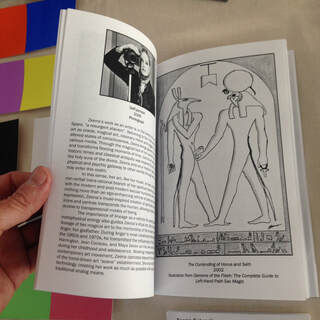 Review excerpt by Luca Piccolo: "[...] in order to have [a] kind of transcendental experience from a work of art, one needs to develop and learn how to use one's sensory perception in a most supernatural way. Therefore, in the case of Zeena's work, we can only begin to understand the deeper dimensions of her art and music, which are so closely linked to her spiritual path, by developing our own senses and spiritual awareness. We might then come to understand how it is that her creations are "a non-verbal, trans-rational branch of her spiritual teaching." In fact, this is the main theme of the first interview in this book, which happens to be my own interview with Zeena, originally published in WSF (online Italian art journal)." 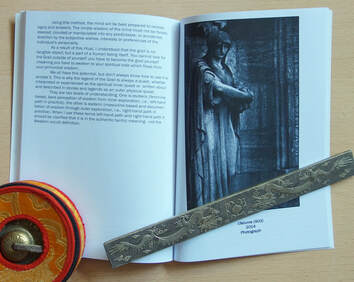 Review excerpt by Nicholas Diak: "One of the standout qualities of iconic individuals in the post-industrial underground is their ability to be successful in a variety of mediums. The subject matter they explore—occultism, history, literature, magic, criminals, film, Grail studies, taboo topics, etc.—crops up in their songs, short films, books, poetry, art, photography, and a plethora of other outlets. Correlating such output is a daunting task. [...]Zeena Schreck is a multi-media artist, writer, musician famous for Radio Werewolf, and a Tantric Buddhist whose artistic output spans decades. Her newest literary offering is The Zaum of Zeena, a softcover that straddles the zine/book format debuted at the tenth annual New York Art Book Fair at the MoMA PS2 this past September. The alliteration in the title is a re-appropriation of a term for a Russian art movement during World War I that encompassed many fields. In the case of The Zaum of Zeena “zaum” is being used as an umbrella term for Schreck’s many endeavors that are showcased in the book. To order click here: The Zaum of ZeenaIn a clandestine operation on the Full Moon, February 28 of 1991, eighty Mongolian wolves were freed from a fur farm in Hungary and transported by the Brigitte Bardot Foundation to safe refuge in France. I was among the volunteers who cared for the wolves during their overnight stay at the Salzburg Zoo. Only two weeks after that wolf rescue, there was an editorial in The European newspaper glorifying the glamour of celebrities who die young, while at the same time decrying likes of Brigitte Bardot as a bitter old has-been, animal rights nut-case (presumably because she didn't kick the bucket prematurely, like the other youthfully deceased celebrities listed in the article). After having witnessed the genuinely selfless efforts by the Bardot Foundation, which made a lasting impression on me, I felt compelled to write a rebuttal (a scan of the original letter is at the end of this post). Bardot had long been an inspiration to me; a woman with principles and compassion who turned her back on celebrity status to focus on animal liberation. The journalist's name has been removed. However, my respect for Mme. Bardot and the sentiments expressed in my letter remain as strong if not stronger today. The below quote describes the moment Bardot knew what her life's mission was to be: „Durante un film, sul set c'era una capretta. La proprietaria mi ha detto 'si sbrighi a finire la sua scena, perché domenica è la comunione di mio nipote e dobbiamo farla allo spiedo'. Ho comprato la bestiola e l'ho portata con me, attaccata a una corda, nell'hotel a cinque stelle. Me la sono portata in camera, che scandalo. Quel giorno ho preso la decisione di smettere con il cinema e di aiutare gli animali. Era il giugno 1973, avevo 38 anni.“. --Brigitte Bardot To an amazingly strong and dignified woman who has survived many storms and saved many sentient beings' lives: May she have the very best of birthdays!
-Om Mani Padme Hum- Zeena Note: More about the wolf rescue is in BEATDOM #11: The Nature Issue In the Sethian Liberation Movement, the birth of the ancient Egyptian deity Seth/Sutekh is celebrated annually for a thirteen day cycle between 16th-29th of July. To mark the conclusion, Zeena releases two additional new designs to her Magic and Mysticism apparel collection. Descriptions below! You can also check them out on our new Etsy shop! -SLM Iao-Seth: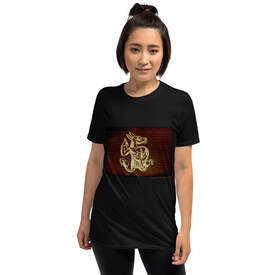 This design by Zeena incorporates a rare ancient Graeco-Egyptian depiction of the god Seth in warrior pose with the head of a donkey and two serpentine legs, bare-chested wearing a fustanella and brandishing dagger and shield. This is perhaps the clearest example of the Seth-Typhon-Abraxas merging of iconography, mysticism and ritual traditions from the Graeco-Egyptian magical gnostic era approximately 2,000 years ago. The background is an invocation comprised of an unbroken stream of the barbarous names of Seth. Ready - Set - Go!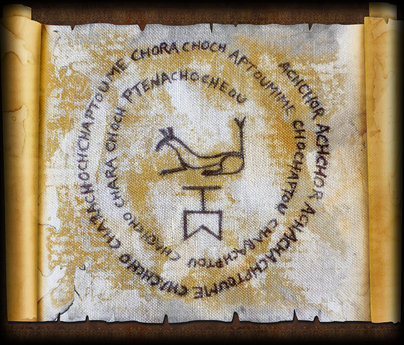 In the ancient Egyptian calendar, the third epagomenal day of the year - the equivalent to July 16th of our current Gregorian calendar - was celebrated as the birthdate of the most powerful of all deities Seth/Sutekh. Today we celebrate with the unveiling of a Sethian talisman created by Zeena (Hemet-neter tepi-Seth) especially for the Nativity of Seth. Made in the ancient magical spellcasting tradition during a trance-meditation state, the original of this Sethian talisman is designed and hand-inked on virgin linen with the prescribed religious ointments. Zeena now shares the magical working on a new apparel item so that like-minded spiritual practitioners may benefit from it and writes: "The graphic incorporates two glyphs representing the ancient Egyptian god Seth in his zoomorphic canine-like form and as the ancient Egyptian symbol for His name, which is also the symbol of the Sethian Liberation Movement (SLM). Encircled by a Sethian incantation text from the Greek Magical Papyri, the letters in spiraling format represent the churning waves and confusion of endless cyclic existence. The words themselves are an invocation for stability within the sea of samsara. When the talisman is worn over the heart chakra, as it is on this shirt, its intended effect is of an ancient pectoral to calm the heart and promote strength in the central channel and spine, fostering a sense of centeredness within chaos – as with the calm in the eye of the Storm. And with that, on this sacred day, and always, may you enjoy Happiness and the causes for happiness and Peace in the Eye of the Storm! -SLM-" ~Zeena To order, visit our new Etsy page! [posted by Thomas] From Zeena:“Big Thanks to my dear friend Fabiano Gagliano of the band Sacred Legion for adding me in the acknowledgments of their fantastic new debut album 'Silent Lineage'! At Fabiano's request, both the band name and album title came to me through a divination for the purposes of “christening” the newly formed band. And the rest is history, as they say! [Scroll down for my review!] Though 'Silent Lineage' is their first album, these well-seasoned musicians have decades-long experience in previous European-based Deathrock and Punk bands. Specifically, Fabiano Gagliano (also a visual artists) is formerly of Chants of Maldoror, Mirko is formerly of Human Disease, and Tony Volume is formerly of Idol Lips. The lads hail from Italy, yet Gagliano, in keeping with the necromantic and nostalgic themes of the album, conjures vocal qualities of deceased cult singers like Marc Bolan, Syd Barrett and Benjamin Orr. The original music in this album reflects an eclectic mix of '80s genres from deathrock, classic goth-rock and post-punk. Yet the music also hints of '70s influences like glam rock, prog rock, early neo-martial and industrial music with choice bits of sampling from cult films that film buffs will enjoy. The stark and mysterious cover art is Gagliano's creation. All lyrics are contained within the CD booklet. An excellent debut for this great new band!
My best wishes and blessings to all involved! Omnia·Vincit·Amor ~Zeena” Check it out at batcaveproductions.bandcamp.com/album/the-silent-lineage Released by Bat-Cave Productions Exclusive in-depth seven page interview with Zeena in the April '21 edition of Derailed, a new magazine for cynics, renegades and survivors of the unimaginable, describes the article: "The Artist Discusses Inspiration, Early Life & 'The State of Suchness.'"
"My leaving my birth country wasn't just about my family. It was about the country itself. It's about what I went through with that national witch-hunt, the whole experience." -Zeena Schreck To read online, go to Featured Story in the April 2021 Issue. Order the print edition at: www.derailedmagazine.com/ Film Review of 'Insidious': Zeena Interviewed about Astral Projecting through the Netherworld3/4/2021 Den of Geek magazine consults Zeena about Tibetan tantric Buddhist practices of astral projection and traveling though netherworlds in relation to the new film 'Insidious,' and its portrayal of a realm called 'The Further'.
Selected excerpts of Zeena's interview below. The entire article can be read at: https://www.denofgeek.com/movies/insidious-is-the-further-real/?fbclid=IwAR1Ttsh47-rstZNZkaYLFRfGtGy3RJm0-ym72mraJa6-QhkK_-wrj0KHimo Selected excerpts: DoG: Among true believers, “the Further” is also called Liṅga Śarīra, Akasha, and prana. But it’s probably best known as the astral plane, a shallow tag in itself. “The term ‘astral plane’ is a poetic description, at best, or more accurately a misnomer,” says Zeena, a Tibetan tantric Buddhist yogini, and iconic occult authority and artist. “When our consciousness pierces the veil of our ordinary, everyday scope of perception, there are infinite other realities one might experience, not just one ‘astral plane.’” [...] DoG: In Insidious, the paranormal hunting psychic Elise explains that Dalton is a “traveler,” who was born with the ability to pierce that veil. “Everybody possesses the potential for astral projection,” Zeena says. “It’s a natural part of being human, just as many other metaphysical or paranormal experiences can naturally occur. But the ability to actualize it is relatively rare, and the effects from the occurrences vary greatly depending on many factors.” [...] “Astral projection during deep states of unconsciousness like sleeping, fainting, or coma, could be achieved by a master of such techniques,” Zeena says. “For one who’s trained most of their life in the esoteric method of willed astral projection, and has become highly skilled in the ability to focus the mind under all circumstances, then deep states of unconsciousness wouldn’t impede their ability.” [...] DoG: Zeena confirms people can be guided through the experience, but insists “it’s a very delicate process requiring a qualified teacher from reputable metaphysical lineages that specialize in that. And even then, astral projection, or directing one’s consciousness, is not the main goal, but rather a way to gauge preparedness for more advanced training on the path toward spiritual enlightenment. When done improperly, the results of attempting astral projection simply for experimentation, entertainment, or curiosity can be disastrous.” [...] DoG: The different practices are often mistakenly considered interchangeable, but are quite different. “With astral projection, one is sending one’s consciousness–either in part or fully–away from their body to a designated place or realm, in this world or others, for a particular purpose,” Zeena explains. “Remote viewing is when consciousness remains in the body but one can view anywhere else from afar. These two phenomena are also different from the involuntary experience colloquially known as OBE (out of body experiences), which usually spontaneously occurs in conjunction with trauma, near death experiences, or extreme stressors or ecstasy.” [End of excerpts] |
SUPPORT FOR WORKS IN PROGRESS
Zeena is an entirely independent, self-funded artist. Her livelihood and funding for creative projects rely solely on commissioned artwork, teaching and lecturing engagements, performances and purchases of her products and music, as well as from donations from private patrons and sponsors. If you would like to pledge your support towards the production costs of current works in progress, please use the PayPal donation button at the top of page. Thank you for your support of Zeena's work! Archives
May 2024
Categories
All
|
Zeena's Bandcamp page |
Copyright ©2024 Zeena Schreck. All rights reserved.
|

